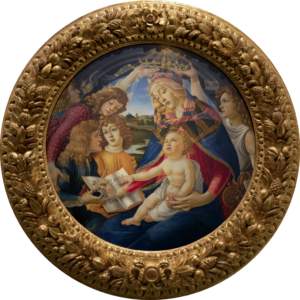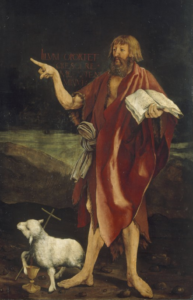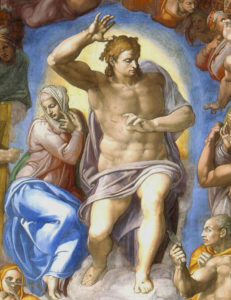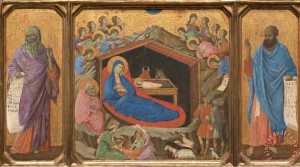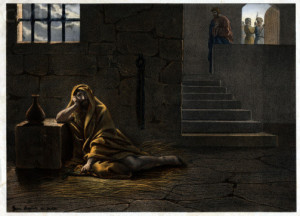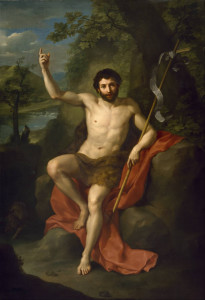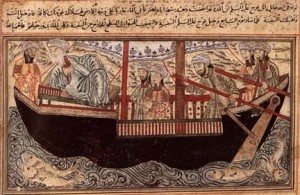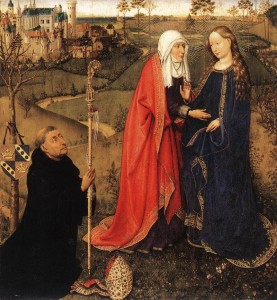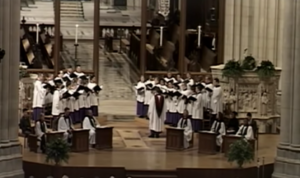
The traditional service of Lessons and Carols was sung on December 10, 2017, by the National Cathedral’s Cathedral Choirs. Readings from scripture, seasonal hymns, and choral anthems proclaim God’s love, continued presence, and the promised coming of the Messiah. To watch the service online, click the image or this link.
Lessons and Carols originated at the Church of England’s Truro Cathedral in Cornwall in 1878, and since World War I has been famously presented (and broadcast) every December for the past century by King’s College, Cambridge, England, and Brown University in Province, Rhode Island. The original service has since been adapted and used by other churches all over the world, not only in the Anglican and Episcopal traditions but in many other denominations as well.
The original liturgy consisted of nine scripture readings from Genesis and the Prophets. The current Episcopal liturgy in our Book of Occasional Services permits as many as nine readings, plus a Gospel, from a choice of 13 Hebrew Bible readings and two Gospel passages.
Here’s a quick look at the readings that St. Matthew’s Episcopal Louisville will use in Lessons and Carols at our 10 a.m. service on Christmas Eve, Dec. 24, 2017, at 10 a.m.
Jeremiah 31: 31-34
The Prophet Jeremiah, speaking when the people are in exile and Jerusalem and the Temple destroyed, imagines God, planning to make a new covenant with the people, forgiving the iniquity that earned their exile when they broke the old covenant by failing to be righteous. The new covenant, written in our hearts, establishes that God is our God and we are God’s people.
Isaiah 64: 1-9a
The people have returned from exile to the wreckage of their city and temple. The Prophet Isaiah calls out a ringing cry to our God of power and might to tear open the heavens and come down among us. God was angry and turned away when the people sinned; but we, like potter’s clay, are the work of God’s hands. We beg God not to remain angry, nor to remember our iniquity forever.
Baruch 4: 36–5: 9
Tradition declares that Baruch was Jeremiah’s scribe, charged with writing down the prophet’s oracles and declarations. This short book of just five chapters, one of the “Apocrypha” at the end of the Old Testament, encourages the people as they return from exile. “Look East,” this passage urges, and see Israel’s children returning in glory, walking on level ground that God has prepared for them to walk safely home.
Isaiah 7: 10-15
We page backward toward the beginning of Isaiah to hear God warning David’s descendant, King Ahaz, that his land will soon be conquered, but that God will give the people a sign: A young woman will bear a child called Immanuel – “God With Us” – a child who will eventually show the world how to refuse evil and choose the good.
Zephaniah 3: 14-18
Much of the short book of the minor prophet Zephaniah prophesies Israel’s violent destruction, amid scornful threats of Israel’s enemies’ destruction. Its closing verses that we hear in Lessons and Carols, though, spare us that, instead looking toward the joyous time when Israel shouts in joy and exultation, its people restored by God in gladness and love.
Isaiah 65: 17-25
The people, home from exile, face a daunting chore in rebuilding the city and its temple, but the prophet assures them that God will create a new heaven and a new earth. There will be no weeping and no distress in the new Jerusalem. There will be no death in childbirth, no pain; all may expect joyous lives of 100 years of youthful strength! The city will be a holy place of peace, where people will enjoy the fruits of their own labor; the wolf, the lion and the lamb will live peacefully together, and none shall hurt or destroy.
Luke 1: 26-38
This Gospel, which is also assigned to the Fourth Sunday of Advent, tells the familiar story of the Angel Gabriel’s visit to a young Palestinian woman named Mary. Through God’s Holy Spirit this young woman will give birth to a son named Jesus, who will inherit King David’s throne and rule over an eternal kingdom. She responds to this amazing news with simple, trusting acceptance: “Let it be with me according to your word.” Just a few verses later in Luke’s Gospel, she will go on to utter the liberating poetry of the Magnificat, the Song of Mary, celebrating the God who casts down the mighty, lifts up the lowly, feeds the hungry and sends the rich away empty.
Additional readings available for use in Lessons and Carols but not chosen for the St. Matthew’s 2017 liturge follow, with brief summaries from the Book of Occasional Services:
Genesis 2: 4b-9, 15-25
God creates man and woman to live in obedience to him in the Garden of Eden.
Genesis 3: 1-22 or 3: 1-15
Adam and Eve rebel against God and are cast out of the Garden of Eden.
Isaiah 40: 1-11
God comforts his people and calls on them to prepare for redemption.
Isaiah 6: 1-11
God reveals his glory to the prophet and calls him to be his messenger.
Isaiah 35: 1-10
The prophet proclaims that God will come and save us.
Micah 5: 2-4
The one who is to rule Israel will be born in the village of Bethlehem.
Isaiah 11: 1-9
The Spirit of the Lord will rest upon the Holy One.
Luke 1: 5-25
An angel announces to Zechariah that his wife Elizabeth will bear a son.

